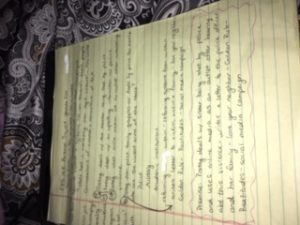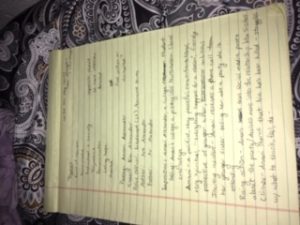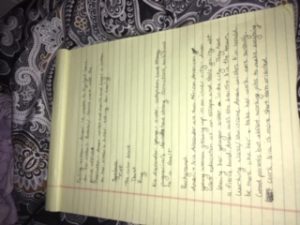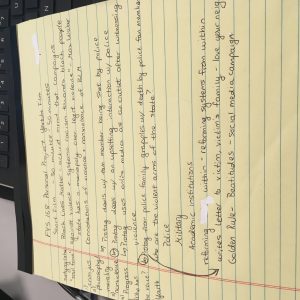As this is my last post, I want to touch upon the various lessons I have learned throughout my personal project.
- Art and nonviolence thrive in a symbiotic relationship. Throughout this semester, I learned about nonviolent action not only through my own project but also through others. I believe in order for there to be wider support for nonviolence, we have to view creative writing and other artistic pursuits as effective mechanisms for nonviolence. Many of the nonviolent cases that we have learned about would not have been a success without artistic pursuits, which bolster my project.
- Writing a screenplay is difficult. I have been exposed to journalistic and other forms of creative writing in the past, but I have never endeavored to write a screenplay. It can be challenging, because not only are you writing a narrative, you are writing the production and reception of your narrative. At times, it was difficult to continue revising my vision and message to fit the confines of an acceptable screenplay, but it was worth it. Soulforce is still a work in progress, but I am proud of the work I have done thus far.
- There is still a lot of work yet to be done. By diving into my project and constructing and intimately knowing my characters, I acknowledge that there are people in the world who face challenges similar to those faced by my characters. Our world has a long way to go, but I believe peaceful noncooperation can change the world.
Moving forward, I will attempt to turn my screenplay into a film. I will edit the script during the break to reflect my continued dedication to this project and the lessons of this class. I am grateful that I chose this project, it certainly has been worthwhile.



